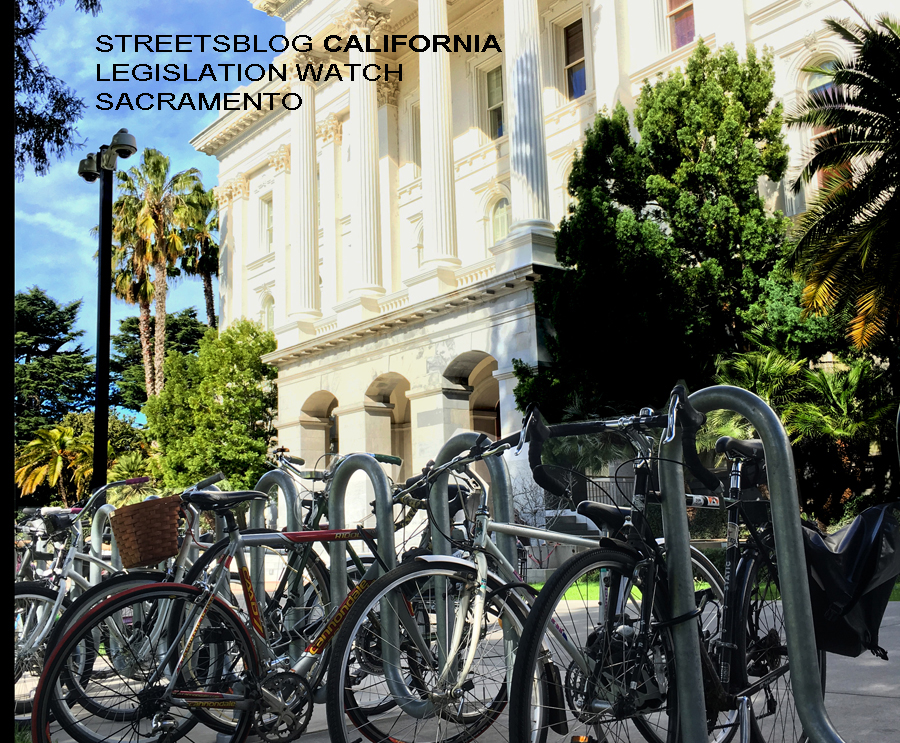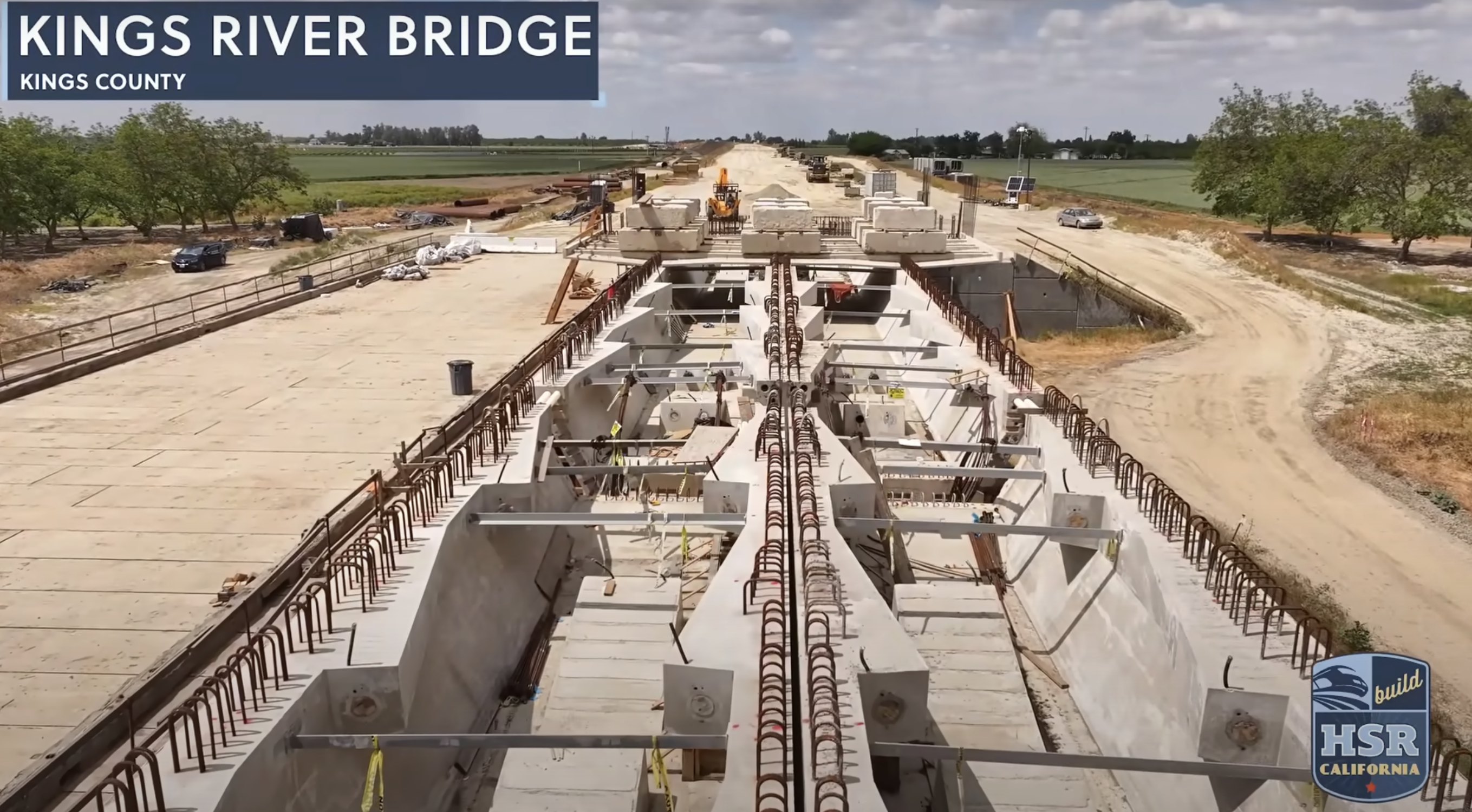Note: GJEL Accident Attorneys regularly sponsors coverage on Streetsblog San Francisco and Streetsblog California. Unless noted in the story, GJEL Accident Attorneys is not consulted for the content or editorial direction of the sponsored content.
In the next few weeks, current bills that have already passed their house of origin are being heard by committees in the other house. All must be passed - or held, or die - before the legislature goes on summer break, starting July 16.
Several key bills passed the Senate Transportation Committee today.
Bicycle Safety Stop
"At first we considered calling this the "Take Your Turn" bill," Dave Snyder, director of the California Bicycle Coalition, told the committee. "But when we dug deeper, and discovered how it will improve safety, we changed the name to the 'Safety Stop' bill."
Others are still calling this the Idaho Stop bill, because Idaho has long had a law that allowed bicycle riders to treat stop signs as yield signs. But several other states have since adopted some version of the law, and have gathered increasing evidence that allowing riders to behave rationally - that is, to slow down at an intersection with a stop sign and proceed through or stop, depending on circumstances - has led to fewer crashes.
"I expected just to see no more danger," said Snyder, whose organization is a sponsor of A.B. 122, authored by Assemblymember Tasha Boerner Horvath (D-Encinitas). "Everywhere a similar law has passed, there has been no evidence that crashes have increased, and there have been no complaints either," he said. "In fact, safety has increased," as evidenced by data from Delaware, which saw a 23 percent decrease in bike crashes at intersections after passing its version of the law.
Theories as to why this is so include how the human vision works. According to Boerner Horvath, humans can easily detect objects that are in motion, and drivers can more easily see things in front of them. One of the benefits of requiring bike riders to yield rather than come to a full stop is that they can more quickly get into and out of an intersection without losing all their momentum - and this puts them more directly in the line of sight of drivers at a stop sign.
"This is NOT a bill that would allow bikes to roll through or blow through stop signs," said Boerner Horvath. Yielding, which would be required, is already clearly defined in other traffic laws.
A.B. 122 has a lot of support, and calls came in from representatives from the cities of Encinitas, Sacramento, and Los Angeles, the Local Government Commission, Streets4All, and the NRDC to urge a yes vote.
There was also spoken opposition, mostly focused on dangers for children. Several speakers, including a few of the Senators on the committee, claimed that young children need to be removed from the bill because they are not capable of understanding how a "yield" might work.
Parents of young children already understand that kids have a hard time "understanding how to be safe in traffic," as one commenter put it. But none explained how having separate laws for children and adults would change that. "Stop," "yield," "look both ways before proceeding" - all are concepts that young children have to learn and practice.
"The status quo does not make our kids or our bicyclists any safer," said Boerner Horvath. "I have heard your concerns, and am happy to keep working with any of you on them, if you so choose."
The bill passed 14-2, and proceeds now to the Senate Appropriations Committee.
Freedom to Walk Act
One witness in support of A.B. 1238 was Jason Sarris, a homeless man who lives in Novato, who described his experience receiving a jaywalking ticket, and its fallout.
"I crossed carefully not because I was afraid of getting a ticket but because I didn't want to get hit," he told the committee, but an officer stopped him and cited him for jaywalking anyway, blocking traffic while he wrote it out. "He stopped me because I didn't look like I belonged in the neighborhood. I had a backpack and my bike with me - I looked homeless, and that made me a target," said Saris, pointing out that it's not just homeless people but also people of color who tend to receive jaywalking tickets "as a form of harassment."
"Jaywalking is a trivial offense, but the consequences are enormous," he said. The citation and fines built up a debt he couldn't pay, and contributed to the suspension of his drivers' license, making it difficult for him to find employment, he said.
A.B. 1238 would decriminalize safe walking behavior and remove fines, said Assemblymember Phil Ting (D-San Francisco), the bill's author. Right now, people can be fined up to $250 for jaywalking, even when there are no vehicles present.
A.B. 1238 would not permit unsafe crossing when an immediate hazard is present, he added. "If there is a vehicle approaching, an officer absolutely has right to issue a ticket in that circumstance," he said. "The bill will not change behavior, but it will change arbitrary enforcement."
Committee members again brought up the children-are-different objection, and complained that the bill would encourage people to engage in "unsafe behavior."
Meanwhile there is an active, ongoing, national discussion of the importance of decriminalizing pedestrian behavior.
Ting accepted committee amendments that add a seven-year sunset clause and annual reporting requirements to track the efficacy of the law. It passed 9-4 and goes to Senate Appropriations next.
Camera Enforcement of Bus Lane Violations
Assemblymember Richard Bloom, presenting his bill, A.B. 917, said that in the L.A. area, vehicles violate bus-only lanes and block buses "every four minutes, causing delays and safety problems for transit riders."
His bill is modeled after an existing one in Alameda, San Francisco, and Contra Costa counties that allows buses to be equipped with a camera that records the license plates of drivers parked in bus-only lanes or blocking bus stops.
"In the pilot phase in San Francisco, the city found there was a twenty percent reduction in delays, and very few repeat violations. Camera enforcement works," he said. "This will provide riders with access to safe and rapid transit, and ensure transit can provide competitive service."
He accepted several amendments suggested by committee staff, including adding a reporting requirement and a requirement to come up with payment options for low-income people who are cited.
AC Transit, a transit provider in the Bay Area, uses the cameras on its Bus Rapid Transit line. A representative called in to tell the committee that "cameras are helping our on-time performance, and we have received zero privacy complaints." They hope the bill passes because it will extend the use of camera enforcement to parked cars at bus stops, which they currently are not allowed to use it for.
There was opposition, of course. ACLU California objected to the use of surveillance technology, and Senator Melissa Melendez expressed concern for the burden it could impose on low-income people who happen to park in a bus-only lane.
The bill passed 15-3 and now goes to the Judiciary Committee.






